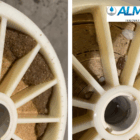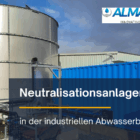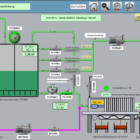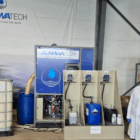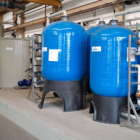Metalworking is a central industry that includes numerous processes such as grinding, drilling, milling, coating, electroplating and heat treatment. These processes generate wastewater containing a variety of pollutants, including heavy metals, oil and grease, organic solvents and particulates. The treatment of such wastewater is not only required by law, but is also essential to protect the environment, reduce operating costs and make efficient use of resources such as water and chemicals.
Table of contents
Composition of wastewater in metal processing
The composition of wastewater depends heavily on the treatment processes and chemicals used. Typical components are
1. heavy metals:
- Nickel, chromium, zinc, cadmium and copper from electroplating processes, passivation or anodizing baths.
- Heavy metals are toxic and hazardous to the environment, which makes their removal from wastewater essential.
2. oil and grease content:
- Emulsions and mineral oils from cooling lubricants used in drilling, milling and grinding.
- Oils and fats make biodegradation more difficult and hinder subsequent clarification processes.
3. organic substances:
- Surfactants, solvents and additives from cleaning and degreasing processes.
- Many of these substances are not easily biodegradable.
4. solids and suspended matter:
- Metal chips, abrasion and particles from mechanical machining processes.
- These substances must be separated mechanically in order to protect pumps and pipes.
5. acids and alkalis:
- Strong pH fluctuations due to pickling, degreasing and neutralization processes.
- A stable pH value is crucial for the efficiency of the chemical and biological treatment stages.
6. cyanides and complexing agents:
- Cyanide compounds from electroplating plants.
- Complexing agents such as EDTA impede the separation of heavy metals.
Technical challenges
The treatment of wastewater from metal processing requires customized solutions to efficiently remove the various pollutants. Typical challenges are
Heterogeneous composition:
- Wastewater varies greatly in its composition, depending on the production processes.
Heavy metals and complexing agents:
- Complexing agents bind heavy metals and prevent them from precipitating, which makes special treatment processes necessary.
Oils and emulsions:
- The separation of oil-water mixtures is often complex and requires specific physical-chemical processes.
pH fluctuations:
- Strong pH fluctuations must be neutralized so as not to impair downstream processes.
Process for wastewater treatment in metal processing
Wastewater treatment in metal processing is based on the integration of chemical-physical and filtration processes. CP systems, flotation systems and sludge treatment play a central role in meeting specific requirements for pollutant removal and wastewater treatment.
1. chemical-physical treatment with CP systems
CP plants are treatment plants that are ideally suited for wastewater with varying compositions and quantities. They work in discontinuous process steps and allow precise control of chemical reactions.
Function and area of application:
CP systems are particularly effective in the removal of heavy metals, emulsions and other chemically contaminated wastewater. They are suitable for the following tasks:
- Neutralization: Acids and alkalis are neutralized in a controlled manner to achieve a pH value of 6.5-8.5.
- Precipitation and flocculation:
- Heavy metals such as nickel, copper and chromium are converted into insoluble hydroxides or sulphides by precipitants (e.g. milk of lime or sodium sulphide).
- Flocculants promote the formation of larger particles that are easier to settle or skim off.
- Emulsion splitting: Oils and fats are chemically destabilized by splitters to enable a clear phase separation between water and oil.
Advantages of CP systems:
- Flexibility: Adaptation to different wastewater volumes and compositions.
- Efficiency: Automatic control and precise dosing of chemical reagents.
- Compact design: Space-saving and ideal for industrial applications with changing wastewater flows.
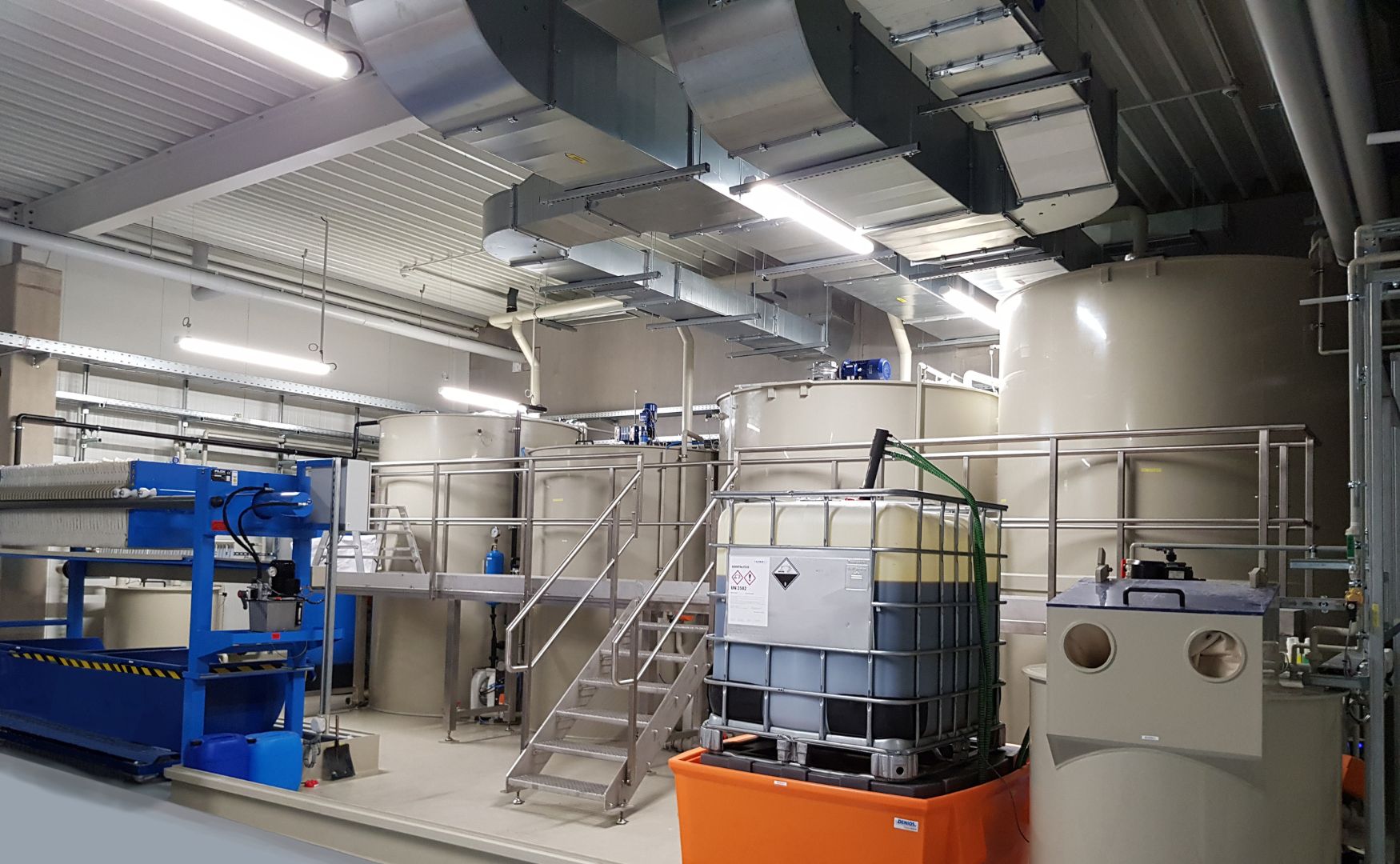
Photo: Our CP system ALMA CHEM MCW for the removal of heavy metals, hydrocarbons, cyanide and chromium
2. flotation plants
Flotation systems, in particular Dissolved Air Flotation (DAF), are physico-chemical systems that effectively remove oils, greases and finely dispersed solids from wastewater.
Functionality:
In DAF technology, pressurized water saturated with air is added to the wastewater. When the pressure is reduced, microscopic air bubbles are formed which attach themselves to suspended solids, oil droplets and flocs. These are transported to the surface and collected in a skimming system.
Areas of application:
- Removal of oil and grease from cooling lubricants.
- Separation of finely dispersed particles and solids formed by precipitation and flocculation.
- Treatment of waste water from cleaning and degreasing processes.
System advantages:
- High separation efficiency: Efficient removal of even the smallest particles and emulsions.
- Low chemical requirement: combination of physical separation and minimal chemical conditioning.
- Flexible integration: Can be used as a pre- or post-treatment stage.
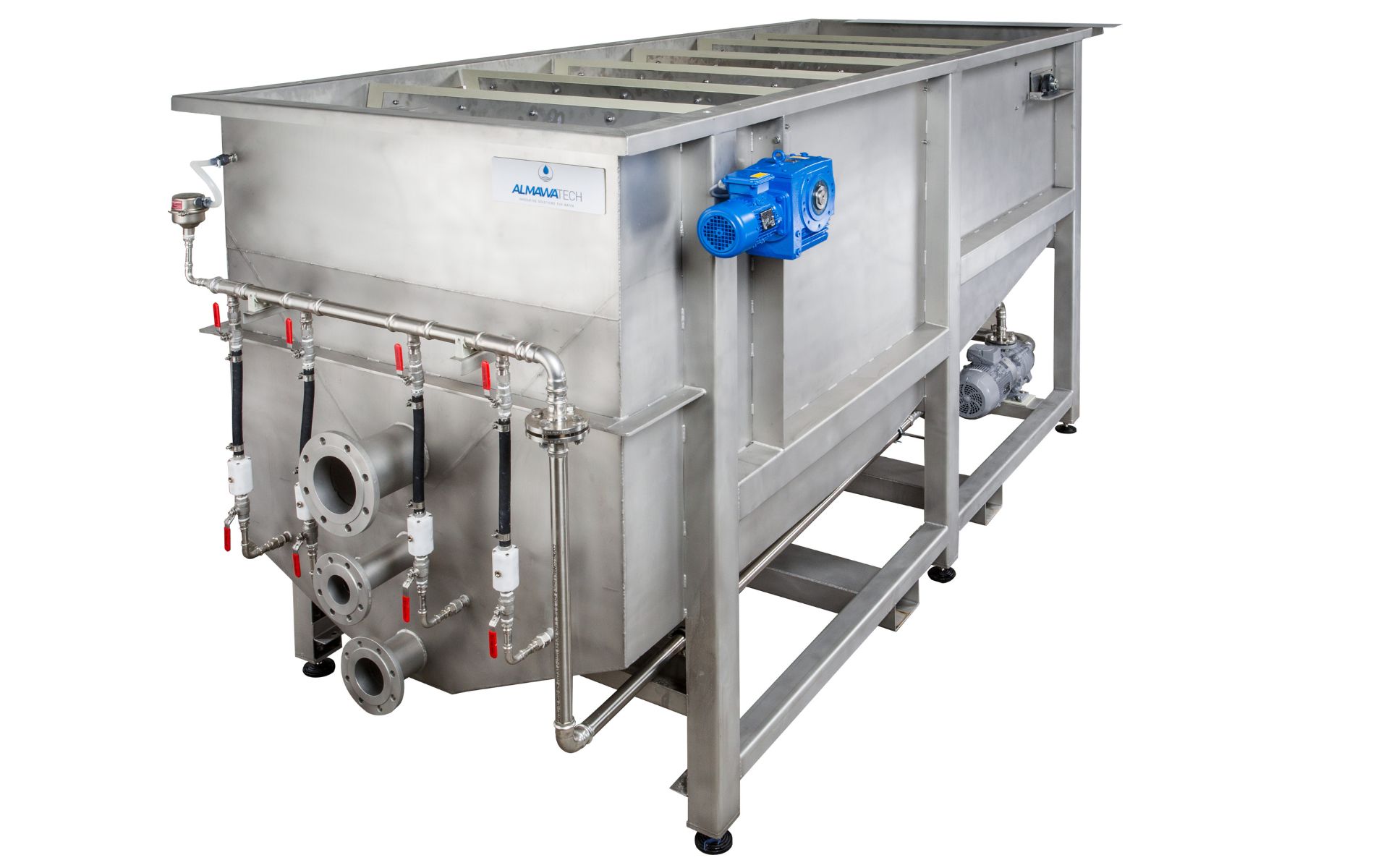
Photo: Our flotation plant for the treatment of wastewater containing heavy metals and oil
Sludge treatment
Sludge treatment is a crucial step in reducing the volume of waste and safely disposing of the pollutants produced during wastewater treatment. It comprises several stages to minimize the water content and prepare the sludge for disposal or recycling.
Drainage:
- Technologies:
- Centrifuges: High-speed systems that dewater the sludge using centrifugal forces.
- Chamber filter presses: Mechanical presses that press water out of the sludge and turn it into solid cake form.
- Belt filter presses: Continuous dewatering through pressure and filtration.
- Goal: Reduce the water content in the sludge to below 30 % in order to minimize transport and disposal costs.
Conditioning:
- Addition of flocculants (e.g. polyelectrolytes) to improve the dewaterability of the sludge.
- In the case of oily sludge, milk of lime is used to reduce the binding of water to oil particles.
Disposal and recycling:
- Landfilling: Sludge with heavy metal contamination is disposed of in landfills under strict regulations.
- Thermal utilization: Sludge with a high organic content can be used to generate energy in cement works or waste incineration plants.
- Resource recovery: Heavy metals can be recovered from the sludge, e.g. through hydrometallurgical processes.
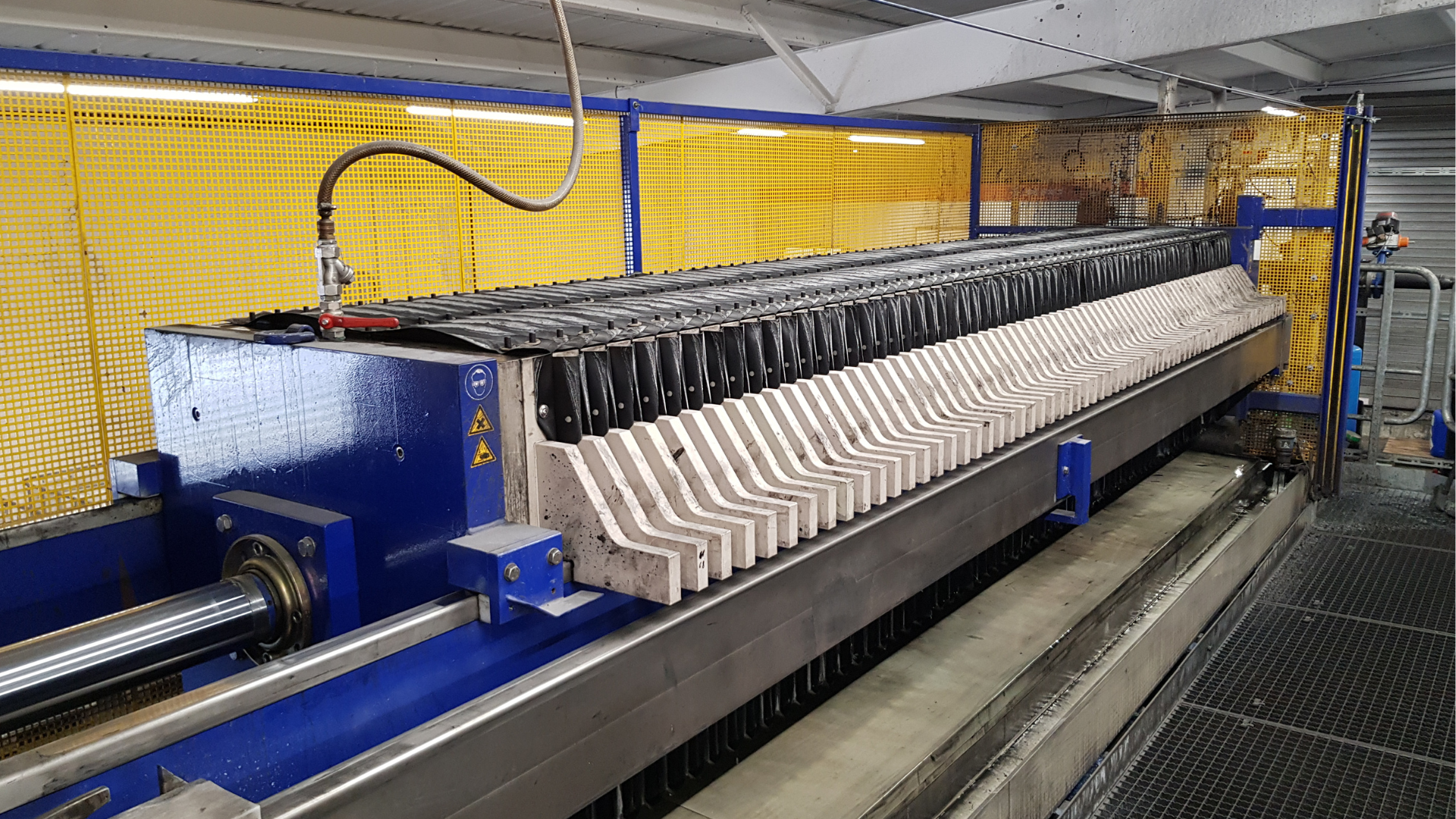
Photo: Our chamber filter press for dewatering sludge from CP systems
Process water treatment
In metal processing, process water from circulation systems or well water is often used. The recycling of process water reduces fresh water consumption and operating costs.
Ion exchanger:
- Ion exchange systems remove hardness formers such as calcium (Ca²⁺) and magnesium (Mg²⁺) to prevent scaling in production systems.
Reverse osmosis (RO):
- Production of high-purity water by separating dissolved salts, heavy metals and organic compounds using reverse osmosis systems. The purified water can be reused in cooling lubricant systems or rinsing baths.
Cooling water treatment:
- Use of biocides, corrosion inhibitors and antiscalants to ensure the efficiency of cooling systems and prevent fouling.
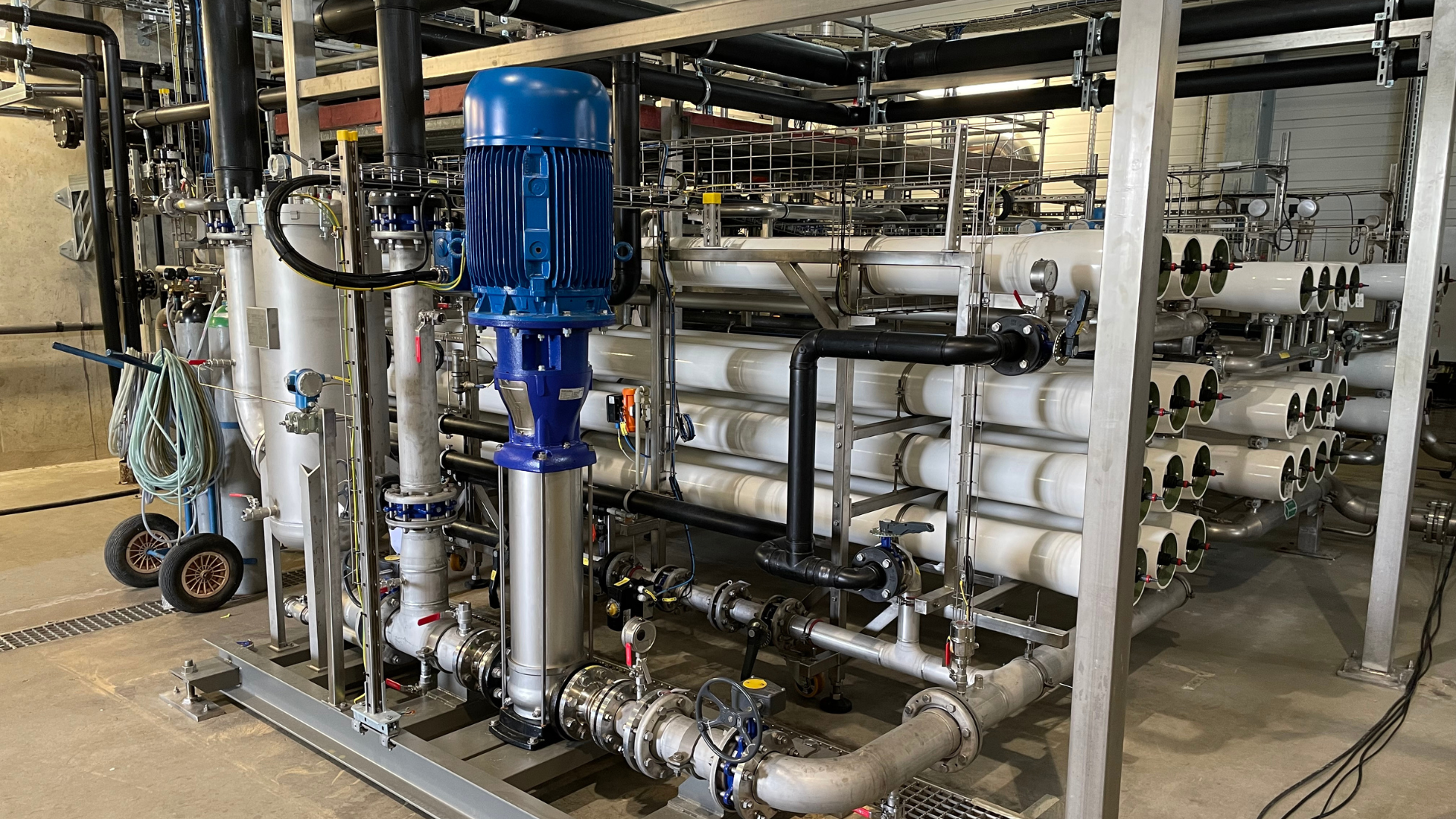
Photo: Our reverse osmosis system for the production of process water
Conclusion
Wastewater treatment in metal processing is a technically demanding task that requires a precise combination of different processes. Through careful planning and the use of modern technologies such as flotation plants, CP plants and reverse osmosis, the strict legal requirements can be met, operating costs reduced and environmental damage avoided.
For further information on our products, please feel free to contact us at any time!


